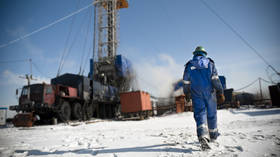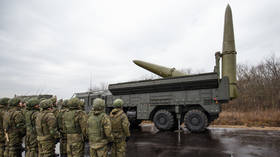Russian oil industry protests crushing taxes – Kommersant

Russia's biggest oil companies have complained that a heavy tax burden combined with domestic fuel price controls is leading to negative returns on production and retail trade, business daily Kommersant reported on Tuesday.
Several industry majors responded to a request earlier this month from the head of the energy committee in Russia’s lower house of parliament Pavel Zavalny to assess the tax burden and its impact on fuel prices.
The issue was discussed in the context of a spike in wholesale fuel prices recorded in September, and drastic steps taken by the Russian authorities to curb the surge. At the time, the government introduced a temporary ban on diesel and gasoline exports. Diesel-related restrictions were subsequently lifted, but a ban on gasoline shipments out of the country remains in place.
The increase in taxes on production and refining, along with state price controls, have sent retail business profits plummeting, according to the CEO of Russia's Tatneft, Nail Maganov. He stressed that the sector is becoming unattractive for investment and development as a result.
Maganov noted that at current gasoline prices, the tax burden amounts to 77.2%, and 77.3% for diesel. Factoring in transportation costs, the tax burden reaches 85.7%, he said. According to the executive, Tatneft now has negative returns on the production and sale of fuel on the domestic market.
According to Surgutneftegaz, the tax take amounted to 110% of the final disposal price for gasoline and 102% for diesel. The company added that currently it does not leave enough money to cover the full extent of rental taxes, excise duty and value added tax (VAT).
The Russian government has been implementing oil tax changes since 2018, aiming to gradually reduce oil export duty and simultaneously raise the mineral extraction tax.
The duty, which will be completely eliminated in 2024, is used to reduce the price of oil on the domestic market and serves as an indirect subsidy for refiners. The authorities provided local oil companies with a reverse oil excise tax and a fuel damper, financed by taxes on oil production, to partially compensate for the loss of the subsidy.
The government was planning to cut the damper in 2023, but decided to retain it, with the Ministry of Finance and the Ministry of Energy currently discussing ways to finance it. Previously, the government had frequently raised the mineral extraction tax on oil under similar circumstances.
For more stories on economy & finance visit RT's business section













